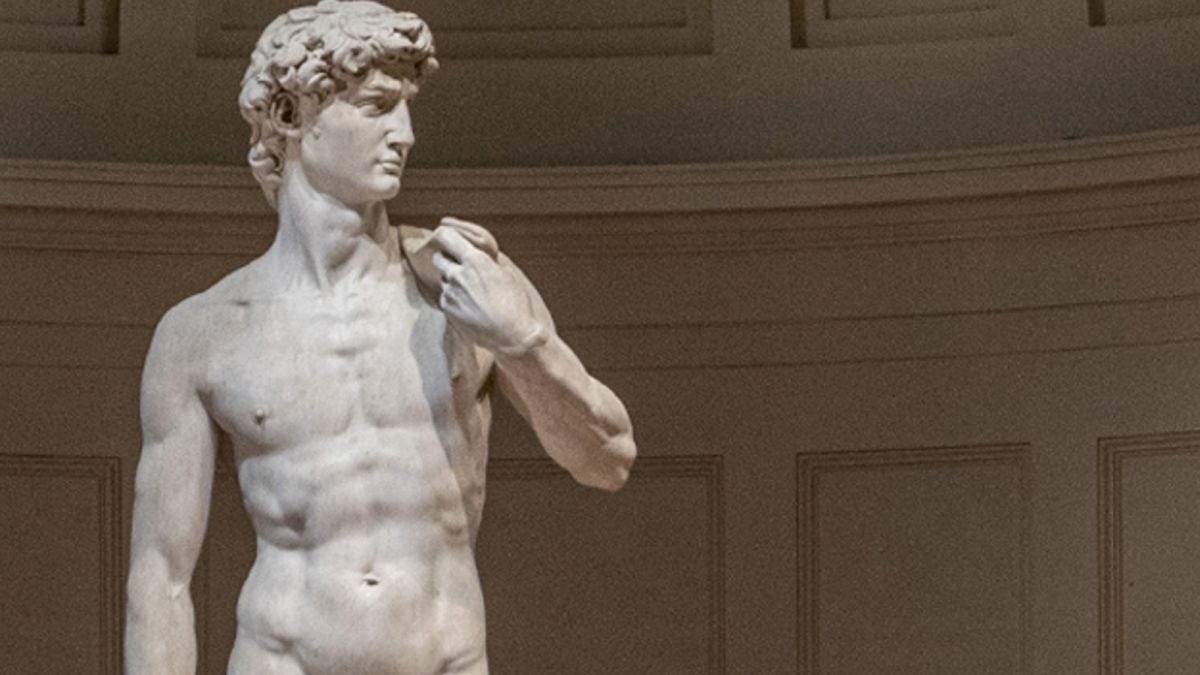He Saw Her Bathing on the Roof
When Leonard Cohen wrote this line in 1984, he immortalized David for a generation.
It’s catchy, isn’t it? …’You saw her bathing on the roof’. It may be the most memorable line from one of the greatest songs ever: Hallelujah.
You wonder, Who was that woman bathing on the roof?
Then you wonder, Who was that spying on her?
Then, if you’re a guy, you wonder, What did she look like anyway?
David is the ‘you’ in this story. Bathsheba is the ‘her’. The ‘roof’ is the top of her house. David is spying on her from his palace—and the whole story is in the Bible.
And you guessed it: ‘saw her’ became ‘desired her’ which became ‘had her’. It’s just how it was 3,000 years ago when you were the King.
A month later, he got word she was pregnant. Embarrassingly, her husband was one of David’s key military leaders named Uriah. David needed an ‘out’ so he called Uriah back from battle so that he’d sleep with his wife. But David had no idea who he was dealing with. Uriah was a true soldier—if his men were sleeping under the stars, so would he.
Therefore, no one slept with Bathsheba that night.
David thought alcohol would do the trick. With some wine in him, he’d surely sleep with his wife. But even intoxicated, Uriah was a true soldier; he slept under the stars that night also.
Then David got desperate.
He sent Uriah back to the battlefield and ordered his men to withdraw from him in the heat of battle. He killed Uriah by the hands of the enemy. Uriah’s last thought was probably not about the enemy and probably not about his wife. I’m guessing Uriah’s last thought was dismay and shock that his brothers would desert him.
David should have been ashamed and humiliated that he’d stolen the one husband Bathsheba had. But he felt nothing—no guilt, no remorse, no regret. Then, to exacerbate the murder, he waited until the period of mourning was over and took Bathsheba to be his wife.
Then one day, Nathan, the prophet, the truth-teller, came calling. He had a story to tell David. “Two men had sheep. One man was poor and owned one little lamb. He raised it, and it grew up with him and his children; it shared his food, drank from his cup, and even slept in his arms. This little lamb was like a daughter to him.”
“Another man was rich. He had many sheep.”
“The rich man had a visitor one day and instead of taking one of his own sheep to prepare a meal for the traveler, he confiscated the single lamb that belonged to the poor man and prepared it for the meal.”
David couldn’t believe his ears and burned with anger against the rich man. “That man should die! He should burn for what he did.”
Nathan stared at David, his eyes wide and his mouth agape. He slowly raised a mirror to David’s face and said, “You are that man! David, you stole Bathsheba’s husband. You are just like the rich man.”
David stopped mid-breath, his mouth went dry, his eyes narrowed, and his heart pounded within his chest: Oh my God, I’m that man.
In the history of men, it is these moments that determine the man. In the history of Kings, it is these moments that determine the reign.
The next six words that came out of David’s mouth made him different than other men and other Kings. It was simply this: “I have sinned against the Lord.” There it was: full admission, complete responsibility, no excuses.
David suffered for this sin, no doubt. His first son with Bathsheba died. His reign was never the same.
But he did recover. Bathsheba soon gave birth to Solomon, another of Israel’s great Kings. David completed his own reign and went down as Israel’s greatest King. One of David’s descendants was father to Jesus (Joseph). It was David’s town in which Jesus was born. ("Today, in the town of David, a Savior has been born to you; he is the Messiah, the Lord.")
The Uriah incident did not ruin David. Uriah did not cause David to lose faith. Uriah did not define David. Recovery did.
I’m glad David’s in the Bible.
I’m even glad he fell as hard as he did. And not because I’m sadistic or his failure makes me feel better. It’s because he gives me hope that if David can recover after what he did, then so can I.
I’m glad because it was this story that broke the ice between me and my son, Lucas, when he was in prison. This is what brought us together personally and spiritually.
And I’m glad because it was this story that compelled me to open my Bible after years of discouragement. I needed to see David’s humanness, the dirt under his nails, his neurosis when he covered his tracks, his stunning blindness, his shock and embarrassment when he looked in the mirror, and the distance he fell after being called a “man after God’s own heart.”
I needed David. So did Lucas. So might you.






Right on Ken!!! A great analogy.